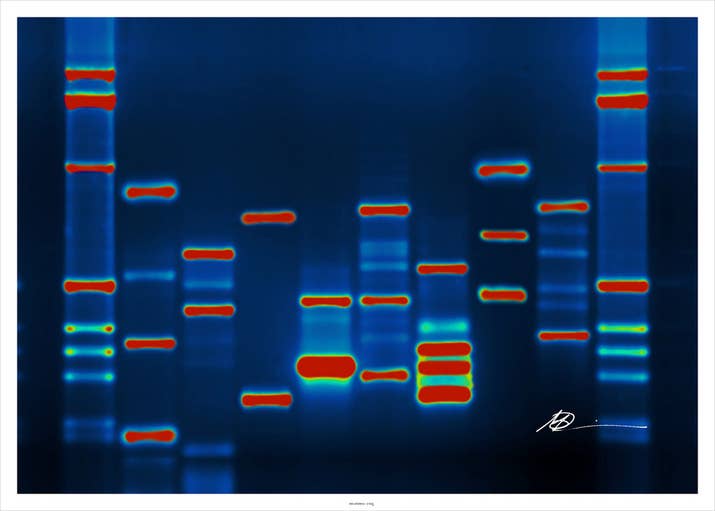Why genes don’t count (for racial differences in health)
American Journal of Public Health
Volume 90, Number 11 (November 2000)
pages 1699-1702
DOI: 10.2105/AJPH.90.11.1699
Alan H. Goodman, Professor of Biological Anthropology
Hampshire College, Amherst, Massachusetts
There is a paradoxical relationship between “race” and genetics. Whereas genetic data were first used to prove the validity of race, since the early 1970s they have been used to illustrate the invalidity of biological races. Indeed, race does not account for human genetic variation, which is continuous, complexly structured, constantly changing, and predominantly within “races.” Despite the disproof of race-as-biology, genetic variation continues to be used to explain racial differences. Such explanations require the acceptance of 2 disproved assumptions: that genetic variation explains variation in disease and that genetic variation explains racial variation in disease. While the former is a form of geneticization, the notion that genes are the primary determinants of biology and behavior, the latter represents a form of racialization, an exaggeration of the salience of race. Using race as a proxy for genetic differences limits understandings of the complex interactions among political-economic processes, lived experiences, and human biologies. By moving beyond studies of racialized genetics, we can clarify the processes by which varied and interwoven forms of racialization and racism affect individuals “under the skin.”
…Professor Armelagos hinted at a powerful lesson: that scientific ideas can endure and be made to seem real if they have social and political–economic utility. An evolutionary framework that explained human variation had been established for more than a century, ever since the publication of Darwin’s Origin of Species. In the 1940s, Montagu used the “new evolutionary synthesis” to explain clearly why race was a biological myth. Yet the idea of race as biology persists today in science and society.
I was aware of the power of race as a worldview in 1973. But what I understood less was the idea’s ability to persist after it had been proven unscientific. If I had been asked in the 1970s whether race would survive as a way to think about human biological variation in 2000, I would have answered emphatically, “No!” I was naive to the durability of an economically useful idea.
Acceptance of the notion of race-as-biology declined in anthropology throughout the late 1970s and early 1980s. Yet, during the past decade, racialized notions of biology have made a comeback. This is especially true in human genetics, a field that, paradoxically, once drove the last nail into the coffin of race-as biology. In this commentary, I explain why race should not be used as a proxy for genetic or biological variation. I then explain and illustrate the unfounded assumptions that are needed for an acceptance that racial differences in disease are due to genetic differences among races…
…The Double Error Inherent in Genetic Explanations of Racial Differences
Two errors—2 leaps of illogic—are necessary for acceptance of the idea that racial differences in disease are due to genetic differences among races. The first leap is a form of geneticization, the belief that most biology and behavior are located “in the genes.”
Genes, of course, are often a part of the complex web of disease causality, but they are almost always a minor, unstable, and insufficient cause. The presence of Gm allotype, for example, might correlate to increased rates of diabetes in Native Americans, but the causal link is unknown. In other cases, the gene is not expressed without some environmental context, and it may interact with environments and other genes in nonadditive and unpredictable ways.
The second necessary leap of illogic is a form of scientific racialism, the belief that races are real and useful constructs. Importantly, this leap propels one from explaining disease variation as caused by genetic variation to explaining that racial differences in disease are caused by genetic variation among races.To accept this logic, one needs to also accept that genetic variation occurs along racial divides: that is, most variation occurs among races. However, we know from Lewontin’s work that this assumption is false for simple genetic systems. For a disease of complex etiology, genetics is an illogical explanation for racial differences.
Read the entire article here.
